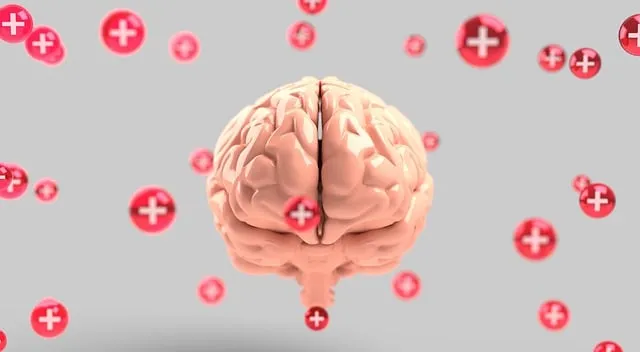Kaiser Permanente, a healthcare leader in Westminster, revolutionizes mental illness diagnoses through innovative strategies that combine advanced tools (phone-based screenings, data analytics) with expert clinical judgment. They invest heavily in cultural competency training for providers and public awareness campaigns to destigmatize mental health issues. Their tele-mental health services via the dedicated Kaiser Permanente behavioral health phone number in Westminster offer accessible, detailed evaluations, encouraging resilience-building exercises for long-term well-being. Telehealth overcomes geographical barriers, enhancing patient care through convenient video conferencing and secure messaging. Continuous improvement efforts include specialized training, trauma-informed care, holistically integrated Trauma Support Services, and policy advocacy to drive systemic changes in mental health treatment.
Mental illness diagnosis accuracy is paramount for effective treatment. Inaccurate diagnoses can lead to prolonged suffering, misallocated resources, and even harm. This article explores efforts to enhance diagnosis precision, drawing from innovative practices like Kaiser Permanente’s behavioral health assessment methods in Westminster. We’ll delve into tools, techniques, and telehealth’s role, along with strategies for continuous improvement and patient support, to ensure more accurate and compassionate care. Contact Kaiser Permanente’s behavioral health phone number in Westminster for more insights.
- Understanding the Impact of Inaccurate Diagnoses
- Kaiser Permanente's Approach to Behavioral Health Assessment
- Enhancing Diagnosis Accuracy: Tools and Techniques
- The Role of Telehealth in Improving Diagnostic Process
- Strategies for Continuous Improvement and Patient Support
Understanding the Impact of Inaccurate Diagnoses

Inaccurate mental illness diagnoses can have profound implications for individuals seeking support and treatment. When a person is misdiagnosed, they may receive inappropriate or insufficient care, leading to prolonged suffering and potential setbacks in their journey towards recovery. This is particularly concerning given that mental health issues are prevalent, affecting millions of people worldwide. For instance, those who reach out to organizations like Kaiser Permanente behavioral health phone number Westminster for assistance might not receive the accurate diagnosis and subsequent tailored treatment they need.
Such misdiagnoses can be attributed to various factors, including limited access to mental health services, insufficient training among healthcare professionals, and the complexity of mental health conditions. This highlights the urgent need for improving diagnostic accuracy, which is a critical component of enhancing overall Mental Health Awareness and promoting Self-Care Practices. Compassion Cultivation Practices within the medical community can play a pivotal role in this improvement, fostering an environment where every patient’s unique experience and symptoms are meticulously considered, thereby reducing misdiagnosis rates and ultimately benefiting individuals navigating their mental health challenges.
Kaiser Permanente's Approach to Behavioral Health Assessment

Kaiser Permanente, a leading healthcare provider, has implemented innovative strategies to enhance the accuracy of mental illness diagnoses. Their approach emphasizes comprehensive behavioral health assessments, leveraging technology like phone-based screenings and advanced data analytics to identify symptoms early. By integrating these tools with expert clinical judgment, Kaiser Permanente aims to improve access to care and ensure more accurate diagnoses for their patients in Westminster and beyond.
In addition to this technical advancement, the organization prioritizes Healthcare Provider Cultural Competency Training to address potential biases and barriers in mental health assessment. They also support the development of Public Awareness Campaigns focused on destigmatizing mental illness and promoting mental wellness. These multi-faceted efforts reflect Kaiser Permanente’s commitment to not only improving diagnosis accuracy but also fostering a supportive environment for individuals seeking mental health services.
Enhancing Diagnosis Accuracy: Tools and Techniques

Improving diagnosis accuracy in mental health is a multifaceted approach, and organizations like Kaiser Permanente are at the forefront of these efforts. One significant strategy involves leveraging advanced assessment tools tailored to individual needs. These tools go beyond traditional methods, incorporating digital platforms and innovative techniques to capture nuanced aspects of patient experiences. For instance, Kaiser Permanente’s behavioral health phone number in Westminster serves as a central hub, offering comprehensive assessments via tele-mental health services. This approach ensures accessibility and allows for detailed evaluations, considering factors like social dynamics, self-care routines, and stress reduction methods—all crucial elements for an accurate diagnosis.
Furthermore, integrating resilience-building exercises into the diagnostic process is transforming mental healthcare. By encouraging patients to develop healthy coping mechanisms and maintain a balanced Self-Care Routine Development for Better Mental Health, practitioners can better understand their emotional responses. This proactive approach not only enhances diagnosis accuracy but also equips individuals with valuable tools to navigate future challenges, fostering overall well-being. Such innovations are pivotal in the ongoing quest to provide precise and effective mental health care.
The Role of Telehealth in Improving Diagnostic Process

In today’s digital age, Telehealth has emerged as a powerful tool to enhance mental health care, particularly in improving diagnostic accuracy. With organizations like Kaiser Permanente offering behavioral health phone services, such as their location-specific numbers for Westminster, individuals can now access professional support from the comfort of their homes. This shift towards virtual care is beneficial for both patients and providers. For patients, it provides increased accessibility and convenience, reducing barriers to seeking help. Through video conferencing, phone calls, and secure messaging, individuals experiencing mental health issues can receive initial assessments and ongoing therapy without facing geographical constraints.
Telehealth also plays a pivotal role in stress management and burnout prevention for healthcare providers. The ability to conduct remote consultations allows professionals to effectively assess a broader range of patients, including those who might be reluctant to visit physical clinics. By streamlining the diagnostic process, telehealth reduces the workload on healthcare facilities, enabling providers to focus more intently on individual patient needs. Moreover, it facilitates the implementation of positive thinking and stress management strategies, which are crucial for maintaining mental well-being among healthcare workers, ultimately improving patient care.
Strategies for Continuous Improvement and Patient Support

Efforts to enhance mental illness diagnosis accuracy often involve a multi-faceted approach, with a strong emphasis on continuous improvement and patient support. One key strategy is the implementation of specialized training for healthcare providers, focusing on both cultural competency and trauma-informed care. By equipping professionals like those available at the Kaiser Permanente behavioral health phone number Westminster, we ensure that patients from diverse backgrounds receive care tailored to their unique needs.
Additionally, Trauma Support Services play a crucial role in accurate diagnosis by addressing the impact of traumatic experiences on mental health. Integrating these services into healthcare systems encourages a holistic understanding of patient presentations and fosters more empathetic, effective treatment. Meanwhile, Mental Health Policy Analysis and Advocacy drives systemic changes, ensuring that policies reflect the latest research and best practices in mental illness diagnosis and treatment.
Mental illness diagnosis accuracy is a multifaceted issue, with significant implications for patient care. As discussed, initiatives like Kaiser Permanente’s behavioral health assessment approach, advanced diagnostic tools, and the integration of telehealth show promise in improving accuracy. By adopting these strategies, healthcare providers can ensure more effective treatment planning and better outcomes for patients. For those seeking support, the Kaiser Permanente behavioral health phone number Westminster offers a vital resource. Continuous improvement efforts, combined with patient-centered care, are key to revolutionizing mental health diagnosis and ultimately enhancing lives.






